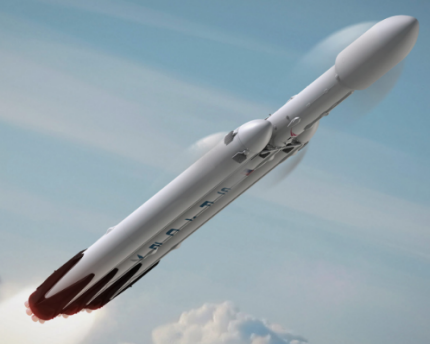Launch failure delays SpaceX's shot at military launches
Elon Musk said the June 28 explosion of a Falcon 9 rocket would delay the inaugural launch of the Falcon Heavy booster ticketed to compete for launches of U.S. military satellites.

Illustration depicts SpaceX’s Falcon Heavy rocket.
SpaceX CEO Elon Musk said this week the company's emphasis on fixing the Falcon 9 would again delay the inaugural launch of its giant Falcon Heavy rocket, which is capable of generating 4 million pounds of thrust. "We've de-prioritized Falcon Heavy to probably launch in the spring next year, maybe April or so," Musk said \ during a briefing on the Falcon 9 failure.
The inaugural flight of Falcon Heavy has now been delayed three times. While the Falcon 9 has been certified by the Air Force to launch military satellites into low-Earth orbit, certification of the Falcon Heavy to boost communications and other satellites to geosynchronous orbits requires at least three successive launches.
Prior to the failure of the Falcon 9 rocket carrying cargo to the space station, SpaceX officials were planning a maiden flight of the big booster by the end of this year. A later Falcon Heavy flight was scheduled to launch a mix of military, NASA and commercial payloads.
The launch schedule remains uncertain as SpaceX scrambles to overcome its first launch failure after 18 successive Falcon 9 flights went off without a hitch. Musk said this week that preliminary findings indicated a failure of a support strut in the second stage liquid oxygen tank. The failure released a helium pressurization bottle that touched off a cascade of failures before the booster broke up.
On July 3, Russia, which had its own failed launch in April, successfully launched an unmanned rocket to carry supplies to the space station.



